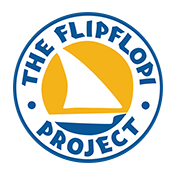We need a regional approach to tackle plastic pollution
The other day, as I walked on a pavement along the busy Nairobi- Nakuru Highway, a road with a spectacular view of green trees lining it, what caught my eye was a freshly looking 1.5 liter plastic water bottle from Kampala, Uganda thrown on the grass. The distance from Kampala to Nakuru is roughly about 500km - well - that’s how far the plastic bottle travelled before its journey was rudely interrupted by its carrier, when it was thrown out of a car window. It then dawned on me that plastic pollution is not a local problem but a regional one. Plastic is a very intrusive item, its ubiquitous and moves across borders fast. It is carried away by storm water, swept into drains before landing on a river which becomes its conveyor to the lakes or oceans.
A study done a few years ago by World Economic Forum paints a grim picture on the future of plastics. It says that by 2050 there will be more plastics in the oceans than fish. This shocking study should be a wake up call to the impending disaster; it must challenge us to rethink our polluting habits, both the producer and the consumer.
Lake Victoria, world’s second largest fresh water lake and East African shared resource is facing the brunt of pollution. According to ‘Micro-plastics in Inland African Waters: Presence, Sources, and Fate’ Research, conducted on the shores of Mwanza, Tanzania the southern shores of Lake Victoria, 20% of Nile perch examined showed the presence of micro plastics in their stomachs.
East Africa Member Countries must therefore join forces to draft policies geared towards safeguarding the environment. It may not bare much fruit protecting one side of the environment when one side is polluted. Like one person said, you cannot urinate on one corner of a swimming pool and expect the other side to be clean. The ban of plastic bags in Kenya is a classic example that no matter what measure is put; illegal plastics continue to get through the porous Kenya – Uganda borders. It is good news that Tanzania joined Kenya and Rwanda in banning plastic bags leaving Uganda and Burundi. However, there are still challenges in terms of implementation.
Having sailed on The FlipFlopi, a boat made from recycled plastics collected across the Kenyan coastline, during its expedition to create awareness on Marine pollution from Lamu to Zanzibar, I strongly feel that the war on plastic pollution needs to be accelerated. Governments should move with speed to sign environmental pacts to tackle plastic pollution. Of importance is to see more bans on single-use plastics and regulations on the plastic industry. Just recently the Kenya Association of Manufacturers launched a‘’ Plastic Action Plan’’ to promote a circular economy, I am hopeful something will come out of it.
Plastic industry and their lobby groups have for a long time perpetuated the narrative that where plastic ends up is the responsibility of the consumer, essentially saying ‘’don’t blame us for plastics in the environment. While the consumer has an obligation to protect the environment, producers too must be responsible for their waste. The consumer sometimes feels helpless on what to do with plastic. If we had a bottle deposit and return scheme, plastic would never end up in the wrong places.
While I commend projects like FlipFlopi for creating awareness and calling for regional plastic policies, governments should be more proactive. Everyone has a right to live in a clean environment and this includes wildlife. Plastic industries must commit to design sustainable products that have lower environmental impact. Producing single-use plastics should cease.
James Wakibia is a Kenyan environmental activist and The FlipFlopi ambassador. Twitter @jameswakibia
(Article originally published in The Rwandan)



